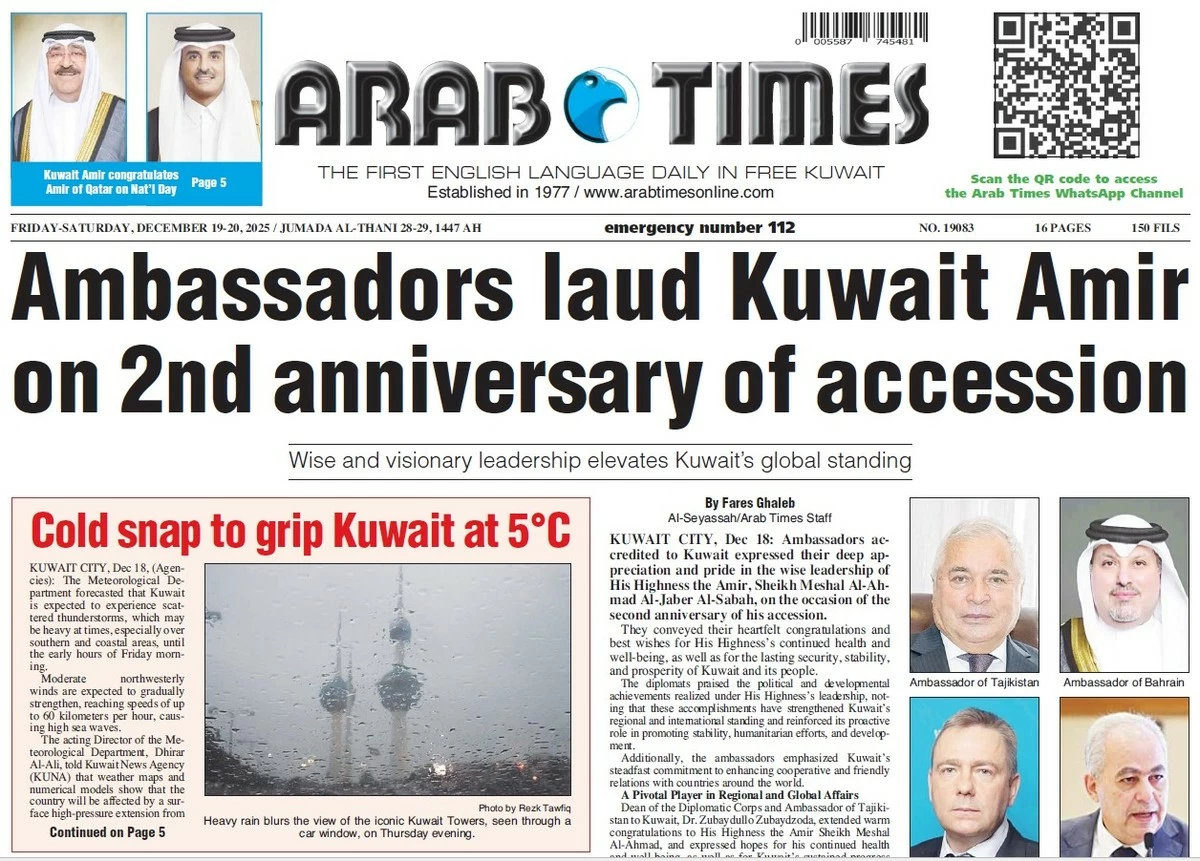23/01/2025
23/01/2025

KUWAIT CITY, Jan 23: The Court of Appeals, headed by Judge Khaled Abdulaziz Al-Khaled, refused to recognize the lineage of three daughters of a Kuwaiti citizen, who were born to a ‘surrogate mother’ through artificial insemination because his wife cannot bear children. Upon his return to Kuwait, he was asked to do a DNA test and the results proved that the children's genes matched the husband’s, but not the wife’s genes, since she was not the owner of the egg used in artificial insemination.
Accordingly, the General Department of Births and Deaths Affairs at the Ministry of Health rejected the request to issue birth certificates, which prevented the extraction of the remaining documents necessary for his daughters, prompting him to file a lawsuit. Case files indicate that the Kuwaiti citizen married a Gulf woman, but they did not have children. After several attempts to have children and repeated visits to doctors, it became clear that they were unable to have children. Later, they visited a hospital in an Asian country, where doctors advised them to undergo ‘artificial insemination’, using a reproductive cell from the husband to fertilize the egg of a foreign woman and implant it in the wife’s womb. They underwent this procedure that resulted in the birth of three children through artificial insemination in the wife’s country.
After obtaining birth certificates from the wife’s country and temporary travel documents from the Kuwaiti embassy there, the couple returned to Kuwait and the husband requested birth certificates for his three children in preparation for obtaining nationality cards, civil identification cards, and passports. The concerned authorities asked the couple to conduct a DNA test to verify the biological relationship with the children and everyone underwent the required test. However, the results were contrary to what the couple expected, as the children’s genes matched the husband’s, but not the wife’s since she was not the owner of the egg used in artificial insemination.
Accordingly, the administration rejected the request to issue birth certificates, which prevented the extraction of the rest of the necessary documents. These developments prompted the husband to file a lawsuit requesting proof of the children’s lineage to him and his wife and to enable him to obtain birth certificates for them, in addition to the civil identification cards, passports and nationality cards. After a dispute over the competent court section, the case was referred to the First Instance Court- Jaafari Family Section. When this court considered the case, it ruled to prove the children’s lineage to the couple, and the effects, including registering the children in the birth registry and enabling the father to obtain birth certificates, nationality cards, passports, and civil identification cards for his three children.
Since Jaafari Personal Status Law No. 124/2019 does not regulate this issue, the first-degree ruling was based on a fatwa issued by the religious entity that authorized this procedure. The court based its decision to the fatwa on Article Three of the law, which states: “Everything not mentioned in this law is referred to the opinion of the most knowledgeable living authority of the Jaafari faith who meets the conditions of imitation.” Nevertheless, this ruling was not accepted by the Public Prosecution, which prompted it to appeal. When the Court of Appeals deliberated on the case, it ruled to cancel the appealed ruling, based on the fact that this procedure is contrary to public order, public morals and Islamic Law.
The court then explained in its ruling: “Mixing a man’s semen with the egg of a woman who is not his wife, even if it results in the creation of a child from the wife’s womb, is an act that is forbidden by Sharia Law. It contradicts the Sharia Law and purpose in preserving lineage because it meets in one source with the product of the sinful relationship between a man and a woman outside the legitimacy of marriage. Saying that this prohibition by Sharia Law does not mean preventing those who are afflicted with the deprivation of a child from modern medical methods that give couples hope of achieving their goal, as one should not be carried away by emotions or human conflicts in explaining the Sharia ruling on these methods.
By Jaber Al-Hamoud
Al-Seyassah/Arab Times Staff


